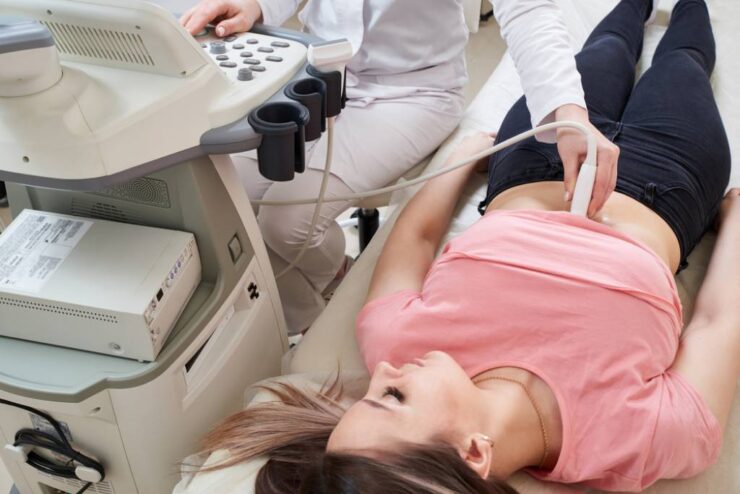
Urogynaecology is a specialized medical field that focuses on diagnosing and treating pelvic floor disorders in women. It combines the expertise of gynaecology and urology to provide comprehensive care for women experiencing issues related to the pelvic floor.
This article will delve into the various aspects of urogynaecology ( , including the conditions treated, the importance of good bladder and health practices, and the treatment options available.
Pelvic floor conditions
A group of muscles, ligaments, and tissues that form a hammock-like structure at the base of the pelvis is called the pelvic floor. It plays a crucial role in supporting the pelvic organs, including the bladder, uterus, and rectum. The pelvic floor muscles also help control the release of urine, feces, and flatus.
Some of the common pelvic floor conditions that a female urogynae in Singapore addresses include urinary incontinence, pelvic organ prolapse, overactive bladder, pelvic pain, and fecal incontinence.
Urinary incontinence
Urinary incontinence occurs when the body leaks urine involuntarily. It can occur due to weakened pelvic floor muscles, hormonal changes, or nerve damage. Picture this: you’re at a social gathering, laughing heartily at a friend’s joke, when suddenly, a small dribble escapes. No need to worry, you’re not alone! Urinary incontinence affects both men and women. Fortunately, treatment options such as pelvic floor exercises, lifestyle changes, and medications exist to help manage this condition.
Pelvic organ prolapse
Imagine a suspension bridge losing its support cables, causing the road surface to sag. That is like what happens in pelvic organ prolapse. Pelvic organs, such as the bladder, uterus, or rectum, can descend or protrude into the vaginal canal due to weakened pelvic floor muscles. This condition can be uncomfortable, causing a feeling of pressure or even a visible bulge. Treatment options range from pelvic floor exercises to surgical interventions, depending on the severity of the prolapse.
Overactive bladder

An overactive bladder is like having a mischievous toddler controlling your bathroom breaks. It comes as a strong urge to urinate, even when the bladder is not full. This condition can disrupt daily activities and lead to frequent trips to the restroom. Causes can vary, including bladder muscle abnormalities or nerve problems. Behavioral therapies, medications, and nerve stimulation techniques are common treatment options for overactive bladder.
Pelvic pain
Pelvic pain can be a perplexing condition, affecting both men and women. It can range from a dull ache to sharp, stabbing sensations. Imagine feeling discomfort during intercourse or even while sitting for prolonged periods. Pelvic pain can be caused by a myriad of factors, including muscle tension, nerve irritation, or other underlying medical conditions. Treatments may include pelvic floor physical therapy, medications, or nerve blocks.
Fecal incontinence
While it may be an uncomfortable topic, fecal incontinence is a condition that affects many individuals. It refers to the inability to control bowel movements, leading to unexpected leakage. This condition can be caused by muscle or nerve damage, diarrhea, or constipation and possible treatments can include dietary changes, medications, and, in some cases, surgery.
The treatment options for pelvic floor disorders may differ depending on the specific condition and its severity. Female urogynaes in Singapore employ a range of approaches, such as lifestyle modifications, physical therapy, medications, and surgical interventions. Lifestyle modifications may involve dietary changes, weight management, and pelvic floor exercises. Physical therapy can help strengthen the pelvic floor muscles and improve their function. Medications may be prescribed to manage symptoms such as overactive bladder or urinary incontinence. In more severe cases, surgical interventions may be necessary to repair or support the pelvic organs. The choice of treatment is tailored to each individual patient, taking into account their symptoms, medical history, and personal preferences.
Importance of good bladder and health practices

Maintaining good bladder and health practices is vital for overall well-being, especially for women. Drinking an adequate amount of water, avoiding excessive caffeine and alcohol, and practicing regular pelvic floor exercises can help prevent bladder-related issues. It is also crucial to maintain a healthy lifestyle by eating a balanced diet, engaging in regular physical activity, and managing stress effectively.
The role of urogynaecology
Urogynaecology plays a crucial role in taking care of women’s bodies by addressing the unique challenges and issues related to the pelvic floor. By providing specialized care, urogynaecologists empower women to take control of their health and improve their quality of life. Whether it is through non-invasive treatments, surgical interventions, or lifestyle modifications, urogynaecology offers a comprehensive approach to managing and treating pelvic floor disorders. By raising awareness and providing effective solutions, urogynaecologists play a vital role in improving the overall well-being of women.
When it comes to seeking medical care for sensitive and intimate issues related to the pelvic floor, many women feel more comfortable consulting with a female urogynae in Singapore. Female urogynecologists understand the unique experiences and concerns that women face, and they provide a safe and empathetic environment for patients to discuss their symptoms. This level of understanding and connection can be essential in building trust and facilitating open communication between the patient and the urogynecologist. Ultimately, the choice between a male or female urogynecologist is a personal one, and one of most important things to consider in this case is for women to feel at ease during their medical consultations.
How to become a urogynecologist
Becoming a urogynecologist requires extensive education and training. After completing a medical degree, aspiring urogynecologists must undertake a residency program in obstetrics and gynaecology. This is followed by a fellowship in urogynecology, which focuses specifically on diagnosing and treating pelvic floor disorders. During the fellowship, urogynecologists gain hands-on experience in managing various conditions and performing surgical procedures. It is a rigorous and specialized field that demands a high level of expertise and dedication. However, for those passionate about women’s health and pelvic floor care, the journey to becoming a urogynecologist can be incredibly rewarding.
If you are experiencing any symptoms related to your pelvic floor, do not hesitate to consult with a female urogynae in Singapore. They are highly trained specialists who can provide the care and treatment you need. Take control of your health and reach out to a urogynecologist today!






